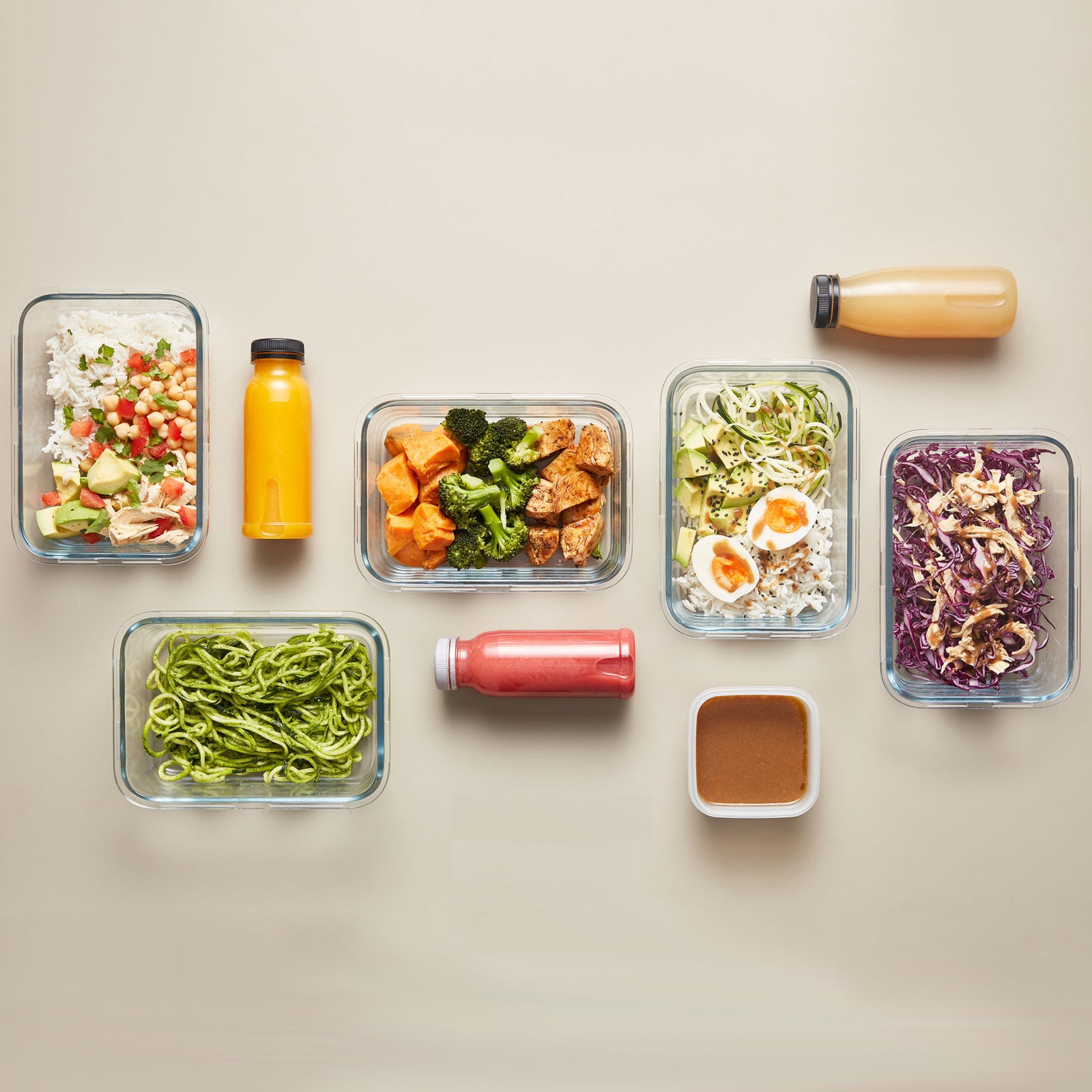If you look closely, youâll notice that most new diet trends are just iterations of old classicsâno matter how groundbreaking they seem or how neatly theyâre rebranded. Take food-tracking apps, for example. Sure, they can crunch your diet into a perfect breakdown of macronutrients, vitamins, and minerals with a single tap, but theyâre really just a high-tech approach to the oldest diet plan in the book: counting calories.
In fact, most diets boil down to the old calories-in, calories-out approach to weight loss and weight maintenance, and many experts argue that it isnât the best approach to sustainable healthy eating. Itâs stress inducing, often feels restrictive, and is pretty hard to get right. Hereâs why you should reconsider calculating your food intake.
Nutrition Labels Arenât Always Accurate
In practice, counting calories means lots of label reading. Itâs even common for calorie counters to rely more heavily on packaged foods and chain-restaurant meals than noncounters, says , a South Carolinaâbased registered dietitian who counsels clients on a nondiet approach to food. âTheyâre going for foods with known calorie numbers over home-cooked foods that they might need to calculate for themselves,â she says.
The problem is, these numbers are only a rough estimate. In a from Tufts University, researchers measured the true calorie values for a variety of fast-food and frozen meals (using , which uses the heat of combustion measurements to give truly accurate calories). They found that fast-food-meal calorie counts were underreported by an average of 18 percent, and frozen-meal calorie counts were underreported by an average of 8 percent. While this might seem surprising, itâs actually within the for calorie reporting, which is 20 percent in either direction. In short, nutrition labels give you a far-from-perfect picture of how much youâre eating.
Calories Donât Equal Satisfaction
The fact that many calorie counters rely on packaged foods poses another problem: a diet of processed foods is likely to make you hungrier. A conducted in May 2019 by the  (NIH) looked at this effect. The subjectsâ20 healthy adults, ten men and ten womenâwere split into two groups for the four-week trial. For the first two-week phase, one group was fed a diet of predominantly processed food, and the other group a diet of whole, minimally processed foods. For the second two-week phase, the groups swapped diets.
The meals in both phases were matched exactly for amounts of calories, fiber, fat, sugar, and other nutrients. At each meal, the subjects were told to eat until they were satisfied, no food logging or calorie counting allowed. Snacks were also available throughout the day, and the subjects were free to eat whenever they were hungry. One dayâs lunch on the ultraprocessed diet was canned beef ravioli, Parmesan cheese, white bread, margarine, diet lemonade, and packaged oatmeal-raisin cookies; the same dayâs lunch on the minimally processed diet was a spinach salad with chicken breast, apple slices, bulgur, sunflower seeds, and grapes tossed in an olive-oil-based vinaigrette.
âPeople ate 500 more calories a day on the ultraprocessed food diet,â says Kevin Hall, the lead author of the study and a researcher at the NIH. When people switched diets and were presented with minimally processed meals that contained the exact same calories and nutrients, âthey spontaneously reduced their calorie intake.â
The study didnât look at the mechanism of why this happens, but Hall points to the fact that ultraprocessed food has far less water than whole foods and thus less volumeâitâs literally easier to chew and swallow, and the researchers did note that people ate faster on the ultraprocessed food diet. Though the study was small, it suggests that all calories donât offer the same satisfaction.
The Stress Isnât Worth It
So does it make sense to value calorie counts over your own satiety? Likely not. For one thing, this can be stressful. âCalorie counting essentially requires you to disconnect from your bodyâs cues of hunger and cravings that are natural and healthy,â says Breese Annable, a psychologist who specializes in disordered eating, chronic dieting, and body image. âYou have to override those cues to âfollow the plan.ââ People can maintain that for a while but eventually overeat because they feel either physically or mentally and emotionally deprived. Then they go back to calorie counting, and the cycle continues.
Even if you do manage to stay faithful to your tracking app, you might find that you donât get the results you hoped for. âWe know that peopleâs calorie estimates are woefully inaccurate,â Hall says. âSo calorie counting is not advisable, because youâre not going to do a very good job.â
Every Day Is Different
The idea that everyone needs 2,000 calories a day is arbitrary. Your body size, age, gender, and genetics all play a role in how many calories you need, and those needs change daily based on sleep, stress levels, and physical activity. âTracking apps base recommendations on formulas that supposedly predict your calorie and macronutrient needs,â Hartley says. âThe problem is that no formula can precisely predict what all types of people need to eat. They just give you a ballpark.â
Even if you account for your physical activity in your calorie countâcalculating how many calories you burned during your workout and adjusting your intake accordinglyâyouâre probably getting it wrong. An activity tracker like a Fitbit or a smart watch might give you a daily count, but a from the University of Leeds, in England, found that different trackers give wildly different calorie-expenditure estimates, and that they are particularly bad at estimating calories burned during sedentary or less active periods. Plus, passive activities like walking, cleaning, and running errands make a big difference, too.
Sleep and stress both affect energy needs in complex ways we donât fully understand. A from Eastern Carolina University found that sleep deprivation can increase calorie needs in the short term but negatively affect hormone function and metabolism in the long term. And a from Ohio State University found that calorie expenditure was lower in the 24 hours following a stressful event.
All of this to say: thereâs a lot at play when it comes to how many calories your body needs on a given day, and itâs nearly impossible to accurately guess that number.
If You Must Track, Ditch the Numbers
Hartley doesnât recommend calorie counting to her clientsâshe favors an intuitive-eating approach that avoids numbersâbut she acknowledges that tracking can be helpful. âItâs so individual,â she says. âFor some people, tracking food without numbers, along with other factors like emotions, hunger, fullness, and satisfaction, can bring awareness and help identify patterns in eating.â Conscientious tracking also makes you more aware of what you eat, which Hall thinks can be useful for certain people. âIt can change your eating behavior for the better,â he says.
For other people, tracking food, even without the numbers, can make them think about food all day. How do you draw the line? âIf youâre using a tracking app and noticing yourself stressing and obsessing about food, thatâs not healthy,â Hartley says. âIf food tracking takes away your ability to be flexible around food, thatâs a problem. If you canât go to an impromptu lunch with coworkers, or enjoy a food that just sounds really good, that might be a sign that the tracking is kind of ruling your life.â Anyone who struggles with anxiety or disordered eating should steer clear. But as Annable explains, if you typically have a healthy relationship with food and your body, and you want to move toward more balanced nutrition, casual tracking might work for you.
Remember the Big Picture
Most people are hoping to do right by their body when they count calories, Annable explains, but itâs critical to think more holistically about health. âIf weâre doing something we think is physically healthy, but itâs creating upsetting emotions and a bad relationship with our body, itâs not truly healthy,â she says. The less time you spend thinking about food, the better.
If youâre a longtime calorie counter looking to take a gentler approach to your eating habits, you donât need to do it alone. âSometimes it can be scary to go from rigid rules around food to having no structure at all,â Hartley says. She recommends working with a dietitian, who can help you come up with a flexible structure to develop a more intuitive relationship with food, no calorie counting necessary.


